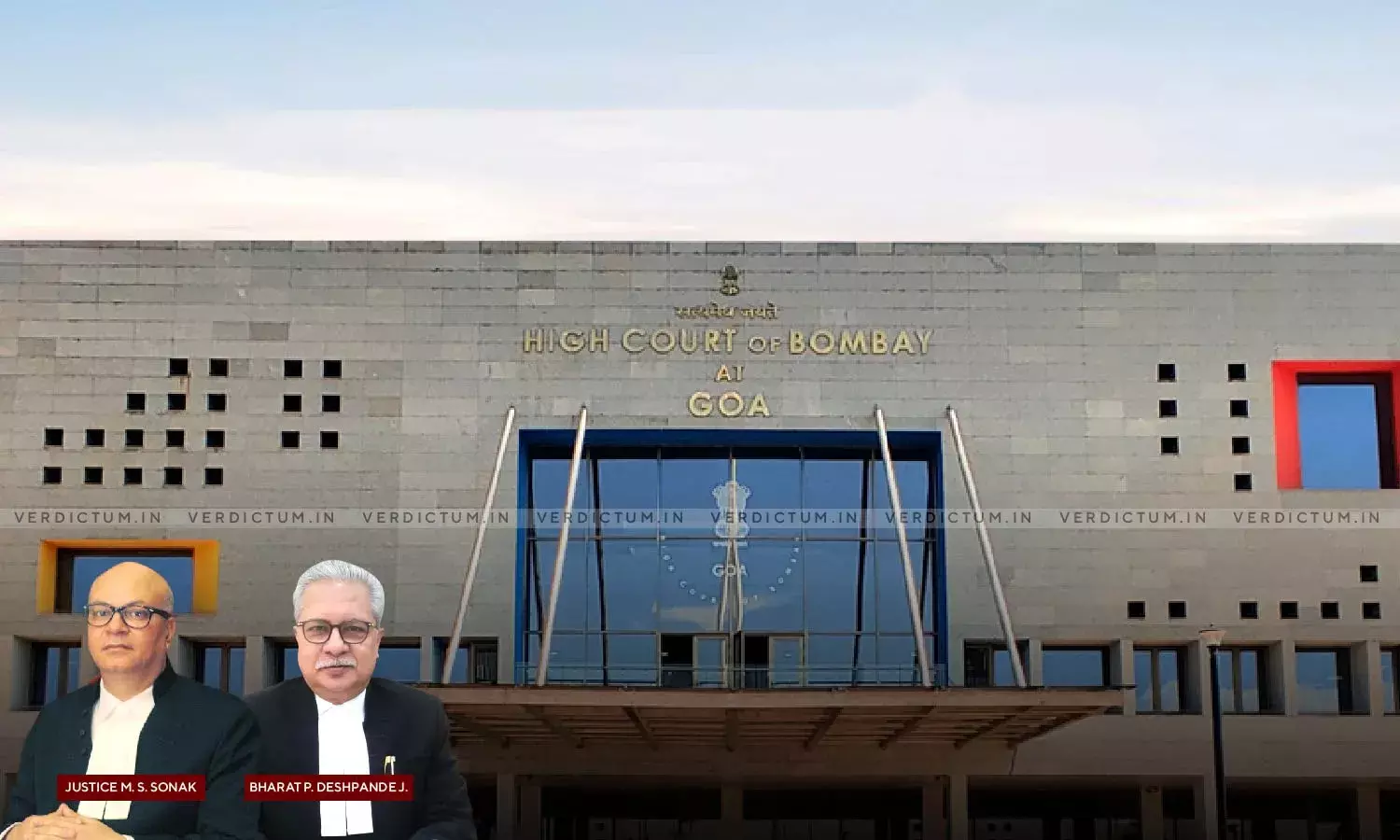Halt Payments For Construction Of Road To Landlocked Site Of ISKCON: Bombay HC On PIL Questioning Largesse To Private Entity

The Bombay High Court issued an interim relief order, halting payments to a contractor for the construction of an access road to the International Society for Krishna Consciousness (ISKCON)'s land in Borim, Goa, until the final disposition of the petition. This PIL was filed questioning the constitutionality of providing such largesse to a private entity using taxpayers' funds. ISKCON a private entity owning a mountaintop property of about 32000 square meters had requested the construction of an approach road to their land in Borim, Goa, by the Public Works Department (PWD). They claimed that the land which was a gift is landlocked, and they have obtained the necessary approvals from local authorities.
A Division Bench of Justice M.S. Sonak and Justice Bharat P. Deshpande stated, “For all the above reasons, we are satisfied that the Petitioners have made out a prima facie case for grant of interim relief. If no interim relief is granted, at least from the photographs shown to us, continued works will have the potential to destroy the landscape of the entire mountain site.”
Advocate General D.J. Pangam appeared for the Respondents.
The Assistant Engineer of the PWD estimated the construction cost of this road to be approximately Rs. 3,12,31,800, and it was suggested that around 1500 people would benefit from this road.
The Advocate General argued that ISKCON's project, which included a Vedic village, temple, and goshala, serves a public purpose, and there is precedent for the state providing roads to landlocked properties.
“As regards the first limitation, it is imperative that if the Government awards a contract or leases out or otherwise deals with its property or grants any other largess, it would be liable to be tested for its validity on the touchstone of reasonableness and public interest and if it fails to satisfy either test, it would be unconstitutional and invalid. The Hon'ble Supreme Court held that, in no uncertain terms, the State cannot act arbitrarily, capriciously or in an unprincipled manner.” the PIL read.
The PIL referenced legal principles that limit government discretion in granting largess, emphasizing the need for reasonableness, public interest, and non-arbitrariness in decision-making. It also cited cases where government actions were scrutinized for promoting private interests at the expense of the state.
“What prima facie the ISKCON could not achieve directly under the Planning Act (a legislative measure) has been achieved indirectly through an executive measure. This is yet another reason for the grant of the above interim relief.” the PIL read.
The Court observed that ISKCON initially sought permission to construct an access road to their land, which was not reflected in the regional plan under the Goa Town and Country Planning Act, 1974 (Planning Act). As a result, they encountered difficulties, leading them to approach the government for assistance.
Section 16A of the Planning Act exempts the Central and State Governments from its applicability, but it was questioned whether this exemption can be legitimately used to provide access to ISKCON's land-locked property.
The Court highlighted that ISKCON may not have been in a position, at least prima facie, to undertake the construction directly due to planning regulations and the definition of "development" under the Planning Act and the Goa (Regulation of Land Development and Building Construction) Act, 2008 (2008 Act). The construction of a road on sloping terrain may qualify as "development," and issues regarding this interpretation need further examination.
The Court said, “At this stage, all that we can say is that a serious issue arises regards the interpretation of provisions of the Planning Act and the 2008 Regulations in the context of determining whether the development of this nature can be permitted on the slopping sites.”
The Court noted that the PIL also emphasizes that providing access to ISKCON's property, which is on a mountain with no houses along the road, might not be in the public interest as claimed.
“The property through which the Government is constructing the road for the sole benefit of ISKCON has no houses, according to the Petitioners. None of the Respondents asserted that there are houses either along this road or who would benefit from this road being constructed by the public exchequer. The explanation that once the ISKCON set up its project of temple, goshala, etc., the members of the public from the world over would benefit from such a road cannot be prima facie accepted.” the Court further held.
Furthermore, the PIL had raised concerns about the granting of an irreversible license by the Managing Committee of the Comunidade for the use of Comunidade land to ISKCON. It questioned the legality of this action, especially as it appears to bypass statutory procedures and checks.
The Court held, “The legality of the action of the Comunidade will have to be examined deeper.”
Finally, the interim relief was granted by the Court to halt payments to the contractor until the final disposition of the petition, and the matter is scheduled for a final hearing on January 08, 2024.
Cause Title: Deelip Babal Naik & Ors. v. The State of Goa & Ors.
Click here to read/download the Order


